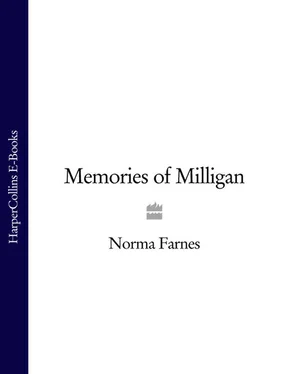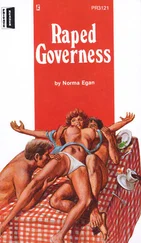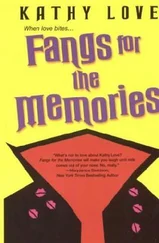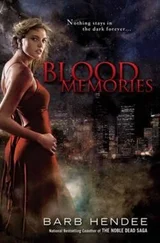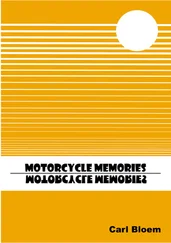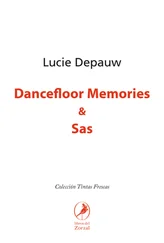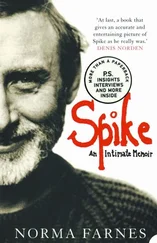1 ...6 7 8 10 11 12 ...15 RAY:They were really prestigious. And we occupied a large part of the ground floor. Two property dealers, Jack Rose and his brother, bought the property then discovered that we were on the ground floor and paying only eight quid a week rent. Jack didn’t like that. He was living with his wife and children in a beautiful flat on the fourth floor. He used to bash into our office unannounced and say, ‘You’d better get used to the idea. I’m going to get all of you out of here.’ We became quite friendly with the guy. I used to go up to his flat – really beautiful – and have a drink with him. He never mentioned getting us out of the building then. He wanted to talk about laughter, but his wife only wanted to talk about somebody’s barmitzvah she was arranging and whether she should put so and so next to Charlie Clore or whoever, or perhaps on second thoughts it would be better to keep them apart, so on and so on. He ignored her and kept on talking to me about humour. He and his brother wrote a book about how to be property dealers.
Then one day he came into our office and said, ‘Right! Come along! Put your coats on. I’m going to show you something.’ We asked, ‘What’s all this about?’ ‘Never mind,’ he said. ‘I’m going to show you something.’ We followed him up Millionaires’ Row, across the Bayswater Road and into Orme Court. ‘Look!’ he said. ‘Number 9. It’s the only one that’s got planning permission for business use. During the Blitz everybody got bombed out of London and the City so this house is the only one along here that has got planning permission.’
He already had the key and took us all over the building. We could see it was a wonderful place. But how much? £26,000, he said. God Almighty! Where were we going to get £26,000? Don’t worry, he told us. He would get us a mortgage. And he did. So he had his wish – getting us out of Cumberland House – and the four of us owned No. 9. It was a great office. Still is.
NORMA:About early 1968 there was a problem when you, Johnny Speight and some others agreed to a deal, negotiated by Beryl, to join the Stigwood organisation. [Robert Stigwood was an enormously successful international impresario.]
RAY:We thought about buying Spike and Eric out, but what was the point? It would just be a drag so we sold out to Spike and Eric.
ALAN:They made an offer to us and we made a bigger counter-offer to them. But we realised it would be too much hassle, and they were staying in the building so we sold out to them. We’d bought it in 1961 for £26,000, between the four of us, and we sold our half for £52,000 in 1968.
RAY:I believe Eric owns the whole bloody lot now.
NORMA:He does. Spike decided to sell because he thought the place was filthy. He was having one of his bad times and had spent the weekend scouring the basement floor with Brillo pads . . .
RAY:. . . and on the Monday he told me he wanted to sell his half of the building. He said to me, ‘I’m nothing more than a fucking janitor.’
NORMA:Spike’s accountant and solicitor told him not to be a bloody fool, but he wouldn’t listen. He insisted on selling his half. I asked him plaintively, ‘But where will you go?’ He replied, ‘Go? What do you mean where will I go?’ I told him, ‘You’re selling the building. Where are you going to go?’ To which he replied, ‘Fucking marvellous! I bring you in and now you want to get rid of me!’ I told him, ‘Well, I wasn’t exactly in the gutter.’ [Ray and Alan laughed.] Spike asked, ‘Why would I want to move from here? As from today I’ll pay rent.’ He scowled at me and then said in exasperation, ‘Well, fuck off, all of you!’ So he stayed, and paid rent.
RAY:I’d like to explain about going to Stigwood. Beryl had overtures from him and most of us saw the sense of going with him. He wanted half the company, that’s all, but in return we would get very good offices at his place and benefit from all his connections. All the writers, with the exception of Eric and Spike, could see the sense in it. We took a poll and every one of them decided to go with Beryl to join Stigwood. We put it to Eric and Spike, but they said they weren’t interested. We knew that what Beryl was doing was the right thing because Stigwood had the money and the contacts to get our work sold to America.
[Beryl successfully negotiated the sale of Johnny Speight’s scripts of Till Death Us Do Part , and Galton and Simpson’s scripts of Steptoe and Son , to an American television network. Till Death became All in the Family and Steptoe became Sanford and Son .]
ALAN:I don’t think Spike was interested in the business side.
RAY:And he didn’t want to move out of the building. I remember a meeting of the writers’ co-operative. One day I said, ‘We haven’t had any meetings.’ So we looked at Spike and said, ‘We’d better have a workers’ meeting,’ and all the chairs were put out and all the writers came into our office. Spike was there but I don’t know if Eric was. The first question came from John Antrobus who was provoked by Johnny Speight. He wanted to know why we two, and Eric and Spike, didn’t pay rent while the other writers did. Spike walked out, slammed the door, went to his room and started to play his trumpet. That was really the end of the workers’ co-operative.
ALAN:First and only meeting.
NORMA:Why did he walk out?
ALAN:He was outraged at the effrontery and attitude. It’s the same attitude he adopted to you when you asked, ‘Where are you going to go?’ The cheek of it. Basically, his motives or morals were being questioned by a lot of idiots. We never had a row with Spike but I think we were very unsympathetic about his mental problems. We ignored them. When he threw a tantrum we’d tell him to fuck off. I suppose they were bipolar problems.
RAY:We didn’t really understand. My missus had clinical depression and I don’t think we had any sympathy for that sort of thing until then. Alan and I had spent three years in a bloody sanatorium with tuberculosis [that’s where they met Beryl]. People with colds and things – it was a case of ‘Piss off.’ We weren’t au fait with mental problems in those days.
ALAN:Spike used to lock himself away in his office and we let him get on with it.
RAY:Tantrums.
ALAN:We took the view that when he was ready he would come out. And, of course, that’s what happened. After two or three days he would come out as if nothing had happened. Others in the office would run round him like blue-arsed flies, kowtowing to him. Ray hit the nail on the head. After three years in a sanatorium we didn’t have much sympathy for that sort of thing.
RAY:Having said that, we used to watch his eyes. You’d be talking to him and somebody would bring him a piece of bad news – well, bad news to him. The wife had left the tap on and he had to call the plumber.
ALAN:His eyes would go – dah! That was it.
RAY:He’d lock himself in his office and that would be it. He’d stay there for days sometimes. People would walk around on tiptoe so as not to upset him. We used to think that was showbusiness taking over. I don’t think we understood. We just got on with the job.
ALAN:Having said all that, we both had great admiration for him because of his talent. And when he was in a good mood we got on extremely well. He was great company.
RAY:While we were unsympathetic, we admired his work. Wonderful! We used to go to the recordings of the Goon Shows . Lots of laughs. And we would have lunch with him at Bertorelli’s in Queensway. More laughs! I don’t know how we managed to get away from lunch to get back to work. We should have been on the floor pissed out of our heads. Here was a guy who wrote on his own – used to come into our office and ask, ‘What do you think of this?’ We never asked anybody what they thought of our work.
Читать дальше
